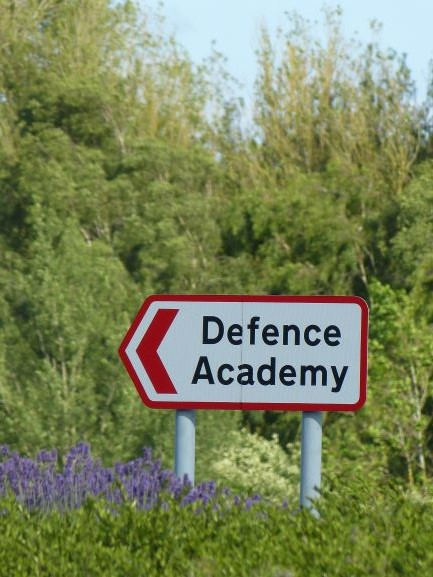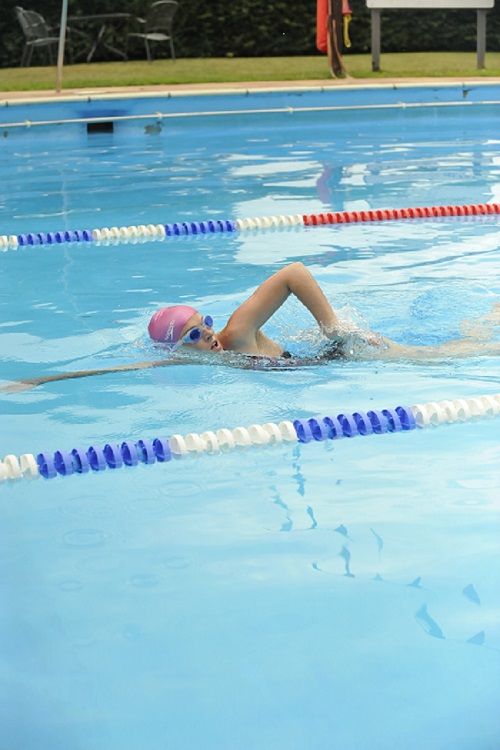My PhD Journey at Shrivenham – Part 1
02/07/2020

My background is as an analytical chemist and a forensic scientist. I have a BSc and an Erasmus Mundus Masters in Forensic Science, and after I finished my Masters, I worked for a while as a scientist. However, I always enjoyed research, so I knew that I wanted to do a PhD at some point. When I came across the position at Cranfield, I thought the project sounded interesting and applied.
I think one of the best things about studying for a PhD is the time you get to spend on a project. Three years is a long time to get to grips with a topic and to learn and enhance one’s skills. On the other hand, three years can fly by very quickly, so the most challenging part is to stay focused. There will be setbacks, but with perseverance most challenges can be overcome.
Student life at Shrivenham is quite different to other campuses, but there are plenty of things to do. Next to going to the gym, I often use the opportunity to take part in military events. This includes for example Mess Events, such as black-tie dinner nights. I have also been a member of the Cranfield Student Association for almost two years and we try to organise small and big events throughout the year. Having these social events, a board game night, a fancy dinner or a trip to the zoo, is a great way to hang out with friends and meet new people and they bring our small student community together a little more at Shrivenham.
Normally, my day, when the nation is not in a lockdown, starts with me getting into work at around 7:30 am. I normally check my emails and sort out anything I need for the day. At 8:30 am, the PhD students meet in the tearoom for a morning tea/coffee and a chat. Most days, someone will have brought in a baked goods, so there is often cakes or biscuits to go around. After that, I either head to the lab or do some data treatment in the office. The PhD students in my department normally have lunch and do a crossword together at 12:00. I tend to forget to eat if for example I do experiments all day, so this forces me to eat and have a break. The rest of the day, I will continue with my experiments or my data treatment. On site, they offer Yoga and Pilates after work, so I will normally head to one of those classes or go for a swim after work.

For someone wanting to do a PhD, next to having a project you think you will enjoy doing for a few years, I think it is important to have a good relationship with your supervisor. People are different, so a supervisor that works for me may not work for someone else. Finding and having a good supervisor relationship is very important. In the end, they are there to help, guide and support you in your project and without that, doing a PhD can be quite difficult. On that note, finding a good support system is also vital. Making friends with other PhD students that understand what you are going through is crucial in helping you overcome obstacles and celebrate achievements. Finding something you enjoy apart from your PhD, a hobby or a sport, is equally as important. It’s good to not think about work sometimes, no matter how much you love your project.
Categories & Tags:
Leave a comment on this post:
You might also like…
Company codes – CUSIP, SEDOL, ISIN…. What do they mean and how can you use them in our Library resources?
As you use our many finance resources, you will probably notice unique company identifiers which may be codes or symbols. It is worth spending some time getting to know what these are and which resources ...
Supporting careers in defence through specialist education
As a materials engineer by background, I have always been drawn to fields where technical expertise directly shapes real‑world outcomes. Few sectors exemplify this better than defence. Engineering careers in defence sit at the ...
What being a woman in STEM means to me
STEM is both a way of thinking and a practical toolkit. It sharpens reasoning and equips us to turn ideas into solutions with measurable impact. For me, STEM has never been only about acquiring ...
A woman’s experience in environmental science within defence
When I stepped into the gates of the Defence Academy it was the 30th September 2019. I did not know at the time that this would be the beginning of a long journey as ...
Working on your group project? We can help!
When undertaking a group project, typically you'll need to investigate a topic, decide on a methodology for your investigation, gather and collate information and data, share your findings with each other, and then formally report ...
From passion to purpose: My journey at the Pinnacle of Aviation
By: Sultana Yassin Abdi MSc Air Transport Management, Current Student Born and raised in the vibrant landscape of the UAE, with roots stretching back to Somalia, my life has always been ...






